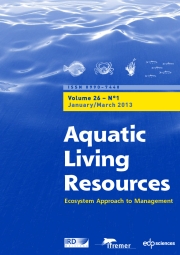Article contents
An evaluation of the policy of fishery resources management by TACs in European Community waters from 1983 to 1992
Published online by Cambridge University Press: 15 July 1995
Abstract
In 1983, the European Community (EC) agreed on a system for the conservation and management of fishery resources which is based largely on the use of annual total allowable catch (TAC). Nevertheless, the state of many European stocks of demersal species has worsened since 1983. A review of TAC enforcement shows that landings have exceeded TACs to a limited extent for these resources. The contrary is observed for the stocks of pelagic species of which the state has improved although landings have frequently been larger than TACs. This double paradox generates a feeling of limited impact of the TAC system implemented by the EC. To investigate the reasons, the closeness between agreed TACs and scientific recommendations has been examined. The results show that the TAC decision process gives some preference to stability but attention is paid to the scientific recommendations. Finally, the lack of accuracy of predicted changes of fishing mortality in catch forecasts is found to have played a critical part in the failure of TACs to avoid the deteriorations of resources observed in EC waters. It leads to the conclusion that evaluation of risks in the TAC decision process and participation of actors of the fishing sector in risk management are important matters that cannot be avoided if one wants to improve the legitimacy of fisheries management and therefore its efficiency.
Keywords
- Type
- Research Article
- Information
- Copyright
- © IFREMER-Gauthier-Villars, 1995
- 11
- Cited by




